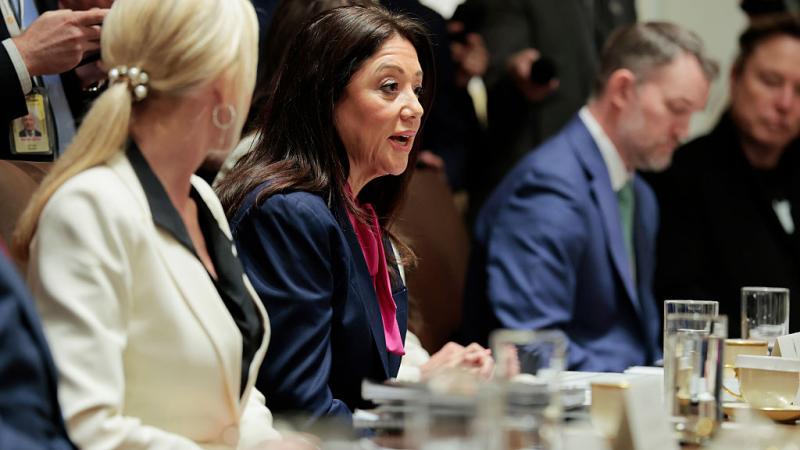'Minority Report'? Google 'prebunking' initiative builds on feds' anti-populism internet games
Google and State Department use "inoculation theory" to extend "precrime" to thoughts, former State official says. U.S. and Eastern Europe experiments inform Google's new efforts in Germany, India.
After experimenting on Americans and Eastern Europeans last year, Google is expanding a program to "inoculate" YouTube users against purported misinformation and disinformation to Europe's largest economy and the world's soon-to-be biggest country.
The Alphabet-owned company gave the Associated Press a preview of its "prebunking" initiative's expansion into Germany, which will focus on the ease of presenting photos and videos as "evidence of something false," ahead of next week's Munich Security Conference. India will follow at an unspecified date.
Google's only direct announcement appears to be on its German policy blog, which mentions COVID, climate change, war and migration as popular targets of disinformation. Continuing the German theme, philanthropist Bill Gates called for artificial intelligence to combat "conspiracy theories" and "political polarization" on a German podcast last week.
The search giant is not the only Big Tech firm working on prebunking. Facebook and Instagram owner Meta told AP it has repeatedly incorporated prebunking into campaigns for media literacy and against misinformation.
Prebunking relies on the same "inoculation theory" underlying Cat Park and other internet games funded by the State Department's Global Engagement Center (GEC) designed to shape foreign elections to Washington's liking, especially by tamping down on populism.
Google and State have deep connections through Jared Cohen, a staffer on State's Policy Planning Committee who convinced Twitter to delay global network maintenance in 2009 to facilitate protests that could topple Iran's regime.
An adviser to both Secretary of State Condoleeza Rice and Hillary Clinton, Cohen left in 2010 to launch Google's in-house "think/do tank," which morphed into the "geopolitical" tech incubator Jigsaw in 2016. Jigsaw is, in turn, responsible for Google's prebunking initiative, which largely aligns with State's goals abroad.
Wikileaks founder Julian Assange explored the connections in a book based on Cohen and then-CEO Eric Schmidt visiting Assange during his U.K. house arrest in 2011. In a Newsweek excerpt titled "Google is not what it seems," Assange claimed the duo's Foreign Affairs essay set up "Silicon Valley technologies as an instrument of U.S. foreign policy."
The feds haven't tried to hide the increasingly intertwined relationship. GEC opened a Silicon Valley location in 2019 that has already "resulted in identifying, exposing, and defending against foreign adversarial propaganda and disinformation" through "quarterly syncs with major companies."
Former State Department official Mike Benz, whose Foundation for Freedom Online analyzes Big Tech-federal collaboration in the name of squelching disinformation, compared prebunking to the "precrime" featured in the Tom Cruise dystopian thriller "Minority Report."
The difference is prebunking is "usually a form of narrative censorship integrated into social media algorithms to stop citizens from forming specific social and political belief systems," he told Just the News.
Inoculation theory and prebunking were developed by U.K. psychologists, including Sander van der Linden, director of the University of Cambridge Social Decision-Making Lab, who works with Google and Meta. He told AP that tech companies like prebunking because it lets them avoid "touchy topics that are easily politicized."
Van der Linden explained in a 2017 presentation how a "psychological vaccine against fake news" could be used against populist movements such as Brexit. University of Bristol cognitive psychologist Stephan Lewandowsky described Brexit as "dictatorship in drag" in an interview last summer about the duo's work with Jigsaw.
They described the inoculation mechanism in testimony to the House of Commons as "preemptive debunking" that doesn't require convincing people to disregard misinformation they've already seen.
Lewandowsky and van der Linden also did a "consensus-message experiment" in 2015 that found "increasing public perceptions of the scientific consensus is significantly and causally associated" with an increase in belief in human-caused climate change and "support for public action."
The Cambridge lab touted its American experiment with Jigsaw shortly before Google's prebunking initiative launched in Eastern Europe last fall.
Jigsaw "exposed" about 5.4 million U.S. YouTube users to an inoculation video, which nearly a million of them watched for at least 30 seconds. Each view of "significant length" cost about a nickel.
YouTube then gave a "random 30%" of those viewers and a control group that didn't watch the video a test question within 24 hours. The former's "ability to recognise manipulation techniques at the heart of misinformation increased by 5% on average," far greater than the typical 1% "brand lift" from advertising on YouTube, the lab said.
After the U.S. experiment, Jigsaw launched "the largest test" of prebunking yet in Poland, the Czech Republic and Slovakia, showing 38 million video ads across Facebook, TikTok, YouTube and Twitter that "dissected different techniques seen in false claims about Ukrainian refugees," AP said.
Those who saw the videos were more likely to correctly identify misinformation techniques and "less likely to spread false claims."
The AP report "sadly understates the practice's dystopic integration, already, into American social media platforms," going back to Lewandowsky's 2017 research, Benz wrote in an email. Just in the next year, Jigsaw integrated prebunking into the Perspective API, which Benz calls a "censorship AI" algorithm, and the Cambridge lab gamified it in Bad News, a precursor to GEC's Cat Park.
Jigsaw's website doesn't prominently showcase prebunking, however. Its only mention appears to be buried at the bottom of the "conspiracy theories" issue of Jigsaw's in-house journal.
Prebunking is an extension of social psychologist William McGuire's work in the 1960s to introduce individuals "to a pernicious claim before they encounter it in the wild, followed by a rigorous debunking of that claim," the description says.
Twitter used the same concept in the runup to the 2020 election by placing a message at the top of user feeds "pointing them to reliable information on the security of voting by mail and the timing of election results," Jigsaw says.
The technique is content-neutral, "scalable, and highly adaptable to different contexts, including informational panels, pop-ups, and pre-roll videos," the description says, pointing readers to the short videos it developed with van der Linden's team.
Jigsaw's days may be numbered, however. Terminated employees told Forbes this month that a third to half of Jigsaw's staff had been let go, which followed Cohen's exit six months before.
Google responded to a Just the News query but has not answered questions about the full extent of its prebunking efforts, including the role of governments and specifically State's possible involvement in U.S. prebunking, and Jigsaw's future.
The Facts Inside Our Reporter's Notebook
Videos
Links
- Associated Press
- German policy blog
- Bill Gates called for artificial intelligence to combat
- German podcast last week
- "inoculation theory" deployed in internet games
- Cat Park
- convinced Twitter to delay global network maintenance in 2009
- "geopolitical" tech incubator Jigsaw
- Newsweek excerpt
- Foreign Affairs essay
- GEC opened a Silicon Valley location
- Foundation for Freedom Online analyzes Big Tech-federal collaboration
- "psychological vaccine against fake news"
- described Brexit as "dictatorship in drag
- testimony to the House of Commons
- "consensus-message experiment" in 2015
- The Cambridge lab touted its American experiment
- Lewandowsky's 2017 research
- Jigsaw integrated prebunking
- Cambridge lab gamified it
- Bad News
- "conspiracy theories" issue of Jigsaw's in-house journal
- short videos it developed
- Terminated employees told Forbes
















